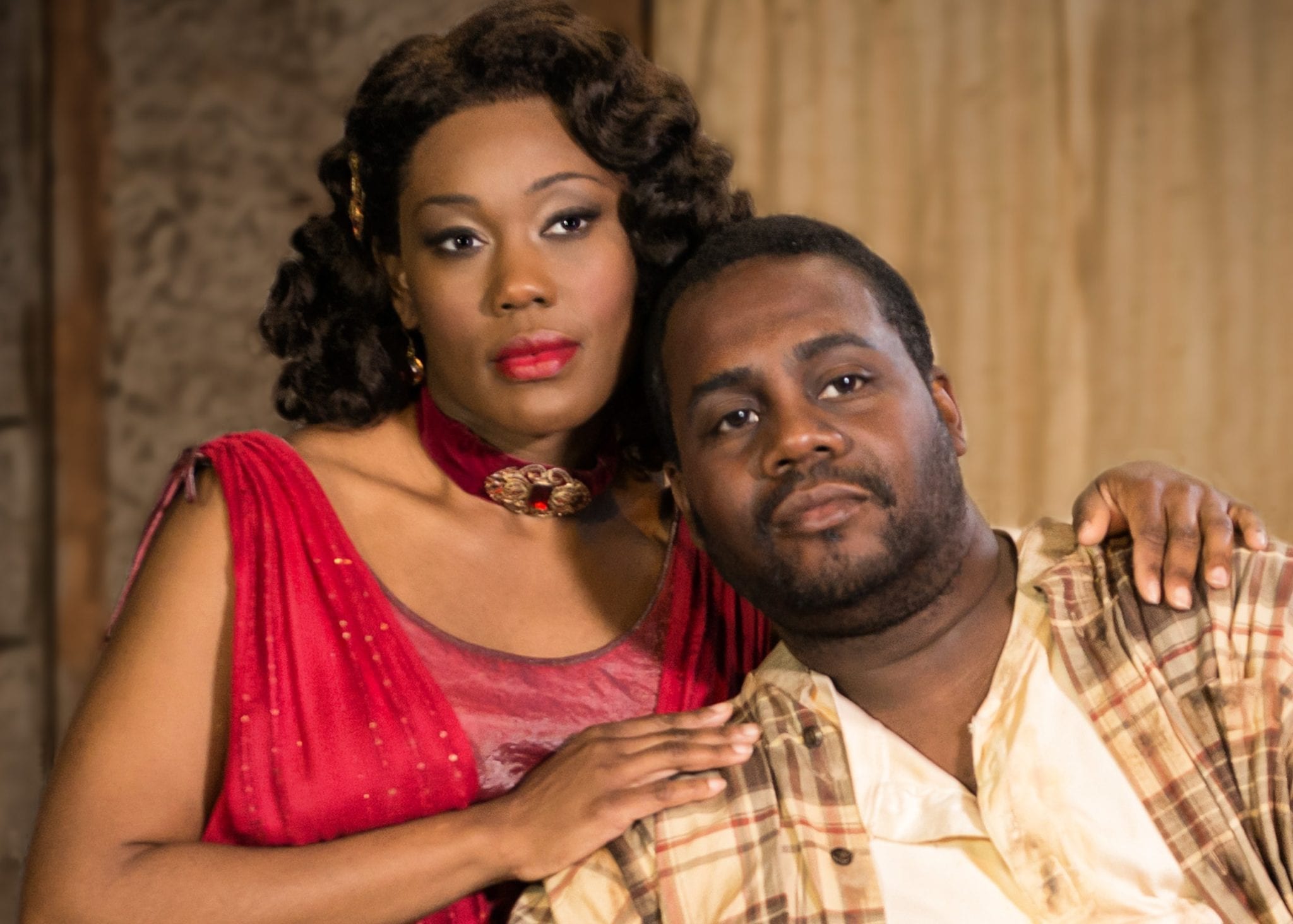LOGAN — When I was a pre-teen, my stepfather used to walk around the house bellowing, “Bess, you is my woman now; you is–you is,” in his lovely baritone voice. That, along with the iconic “Summertime” were my introduction to America’s classic Porgy and Bess.

Set in the 1930’s, The Gershwins’ Porgy and Bess (with music by George Gershwin and lyrics and script by DuBose Heyward, Dorothy Heyward, and Ira Gershwin) tells the story of a close-knit black community whose romances, religious beliefs, and vices lead to violence, sorrow, and difficult lessons. At the center is a crippled man named Porgy, who is deeply in love with Bess, a rovin’ gal whose drug habits and and addiction to her hot-headed lover Crown causes a great deal of grief for not only Porgy but the other members of the community.
A simplistic story, the production relies heavily on the orchestration and vocal performances, which I am pleased to announce were both beyond stellar. The orchestra, conducted by maestro Barbara Day Turner, played through complicated and intricate melodies as well as any symphony orchestra. It is a marvelous thing indeed to be able to experience theatre as it was intended: with the freedom and full sound that live music provides. Ever a fan of dissonant chords and unique harmonies, I was impressed with the way the orchestra had its own voice both in carrying tension and release through the action of the play.

As far as vocal performances, it is difficult to spotlight one actor over another, as every single voice was so powerful and sublime that, from the moment lyric soprano Jasmine Habersham (playing Clara), opened with her shimmering, effulgent “Summertime,” I was overwhelmingly taken in. Leads Kenneth Overton (as Porgy) and Kearstin Piper Brown (as Bess) had star power that matched their vocal prowess, Overton’s rich, bold baritone blending gracefully with Brown’s incandescent soprano. My favorite example of this was in the duet “Bess, You Is My Woman Now.” This may be partially due to nostalgia, but it sincerely came down to the lilting, lush sweetness of the piece.

Other standouts included alto Gwendolyn Brown as the wise and formidable mother figure Maria, who provided most of the comedy in the piece, and Jenina Gallaway as Serena, whose keening, operatic wail over her murdered husband was so puissant and forceful that I found my mouth hanging open. I didn’t know the human voice could do that.
If I had one criticism, it would be the “brief pauses” between scenes. The set was large, and I understand the problem with moving sizable pieces, but each break was a solid three minutes, making the already lengthy opera even more expansive, especially factoring in the excessive twenty minute intermission, which is apparently the standard for this playhouse. There were six or so pauses in total, and a slight improvement may have been music played in these breaks, which were silent and thus a tad odd. The orchestra could be given a rest if recorded music were utilized, but having the audience standing up, chatting, and getting distracted broke up the flow.

A warning to families: there is a scene in which Crown (played with dynamic strength by bass Brandon Coleman) seduces Bess in the woods. The actor actually fully groped her bosom and came very near her pelvis, lifting her skirt and exposing much of her thighs as well. Though not gratuitous in director Daniel Helfgot’s staging, as it serves the story, it might be a bit much for younger patrons, so parental discretion is advised.
As a lover of opera, I was enchanted and charged by Gershwin’s classical and moving masterpiece, which I have wanted to see since childhood. I can say positively that I was relieved that my first experience with it was so fulfilling. I most enthusiastically and confidently endorse this production.
[box]Remaining performances of The Gershwins’ Porgy and Bess play July 29 at 7:30 PM and July 20 and 22 and August 4 and 6 at 1 PMat the Ellen Eccles Theatre (43 S. Main Street, Logan). Tickets are $13-77. For more information, visit www.utahfestival.org.[/box]
